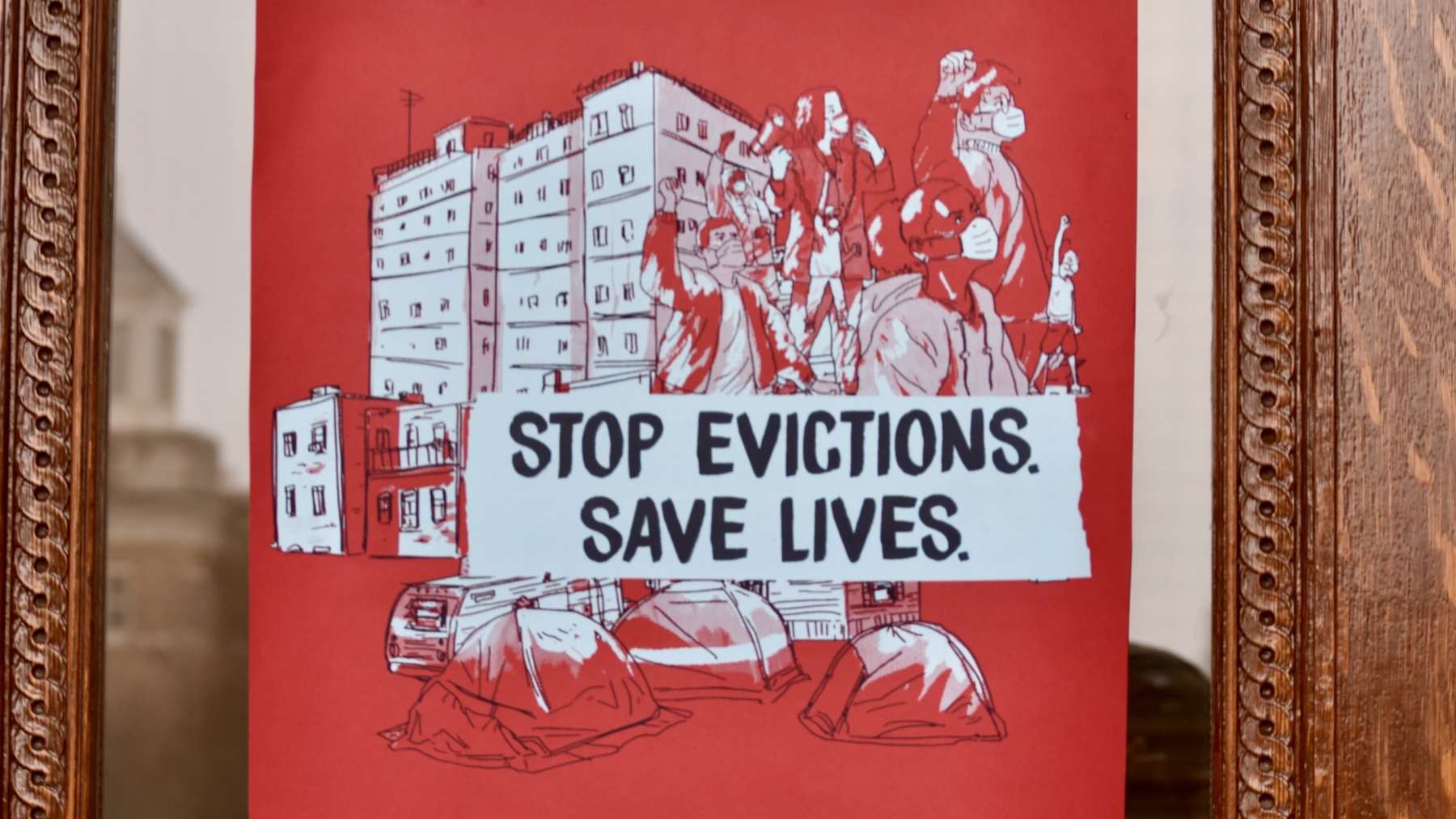CDC Eviction Moratorium extended to June 30, but landlords are exploiting loopholes
The newly launched rental assistance program Rent Relief RI can be a powerful cure for what ails Rhode Island landlords and tenants, but only when coupled with a state eviction moratorium that fills the gaps in the federal protection.
April 7, 2021, 8:30 pm
By and
The Centers for Disease Control (CDC) extended the federal moratorium on evictions of tenants for nonpayment of rent to June 30, 2021. But this is not the whole story. Covid cases are still high, and not every renter is covered by this moratorium. It only covers nonpayment cases, so landlords have found loopholes by claiming alternate reasons for eviction or simply not renewing leases.
According to the Associated Press, there were days in December where Rhode Island was not just one of the worst places for Covid in the nation, but one of the worst globally. Hospitals hit capacity as the rate of new cases topped the nation. Making it extremely difficult to keep folks safe during the already pre-existing housing crisis.
The CDC moratorium directly links health and home. Housing is not just crucial for preventing the spread of COVID. We need stable homes for economic recovery from the record high unemployment rates and number of business closures. Which is why the added Consumer Financial Protection Bureau (CFPB) protections are welcomed. Now landlords must notify tenants that they are protected by the moratorium or risk unfair trade practices consequences.
We are still living in difficult times. The Covid positive rate is about double what it was under stay at home restrictions in April and May 2020. Evictions are financially devastating and dangerous to people’s health and the health of the community. Moving people from their homes while the pandemic is still raging risks wider disease spread and higher death rates.
Stop Evictions and Save Lives!
Evictions disproportionately target families, according to a 2013 Harvard study conducted by Matthew Desmond, author of Evicted. Households with children are 17 percent more likely to receive an eviction judgement than households without children. A one percent increase in the percentage of children generally increases that neighborhood’s eviction rate by 6.5 percent. Evictions also disproportionately impact Black Americans. According to the ACLU, on average, Black renters have evictions filed against them by landlords at nearly twice the rate of white renters.
In January 2020, there were 108 people experiencing homelessness outside. Due to COVID-19, Rhode Island had to reduce shelter density and lost 146 shelter beds. Now as of March 27th, we have 205 people staying outside and 252 in state-provided hotel beds. There are often zero shelter beds available particularly for families with children. Anyone evicted risks being exposed to COVID-19 and other environmental dangers associated with being homeless.
With new federal funds coming to Rhode Island, a new housing assistance program, Rent Relief RI is launching. Led by Rhode Island Housing, the program will be in collaboration with agencies across the state. It will connect landlords and tenants to rental assistance for tenants impacted by COVID-19. Like recent state emergency rental assistance programs, which distributed a total of $12.1 million in funds, Rent Relief RI will pay landlords directly, covering the expenses for their properties. This level of assistance will protect landlords from foreclosure when their tenants have lost income due to COVID-19. Tenants in turn will have stability to remain in their homes while they get back on their feet.
As a result of the pandemic, many businesses have been forced to close. Thousands of Rhode Islanders have lost their jobs. The moratorium and Rent Relief RI are tools to bridge the gap from this immediate public health crisis to long-term housing stability. According to HousingWorks’ 2020 Factbook, based on two-bedroom apartments, no municipality is affordable to households earning the state’s median renter income of $34,255. This stems from the lack of investment in affordable homes. Rhode Island is the only state in New England without sustained state funding for the development of affordable homes. Our state invests one fifth what Massachusetts does in affordable housing, according to the 2020 RI Kids Count Factbook.
Given the severe lack of affordable housing that predates the pandemic and the exacerbations of the dual health and economic crises of 2020 and 2021, Rhode Island landlords and tenants need time to gain access to rental assistance and to gradually build back their physical and economic health. State moratorium protections can make this a reality. The newly launched rental assistance program Rent Relief RI can be a powerful cure for what ails Rhode Island landlords and tenants, but only when coupled with a state eviction moratorium that fills the gaps in the federal protection. Housing advocates warn that displacement during a declared state of emergency due to eviction is not only inhumane, but a traumatic experience and a barrier to renters obtaining housing in the future as eviction records are not sealed and pose a grave risk of being overlooked at the landlords discretion.






